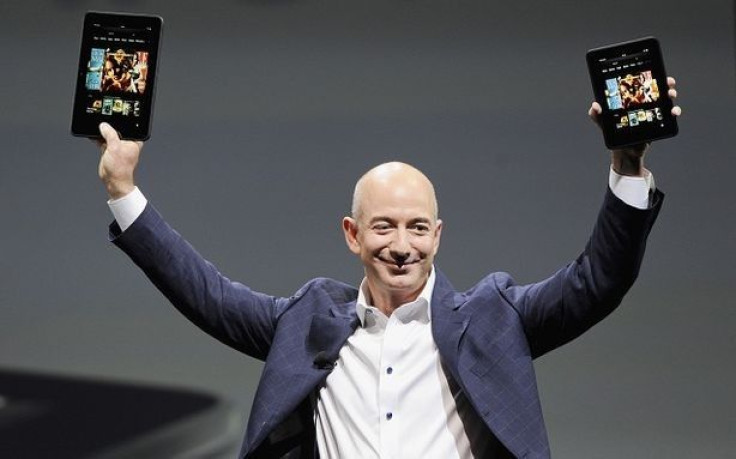Amazon Publishing Reveals Sales Numbers In Email

After seeing the unprecedented success of a title like "Fifty Shades of Grey," casual readers and publishing industry analysts alike were led to wonder what the future of digital publishing held for the book industry as Amazon Inc. (Nasdaq: AMZN) continues to edge out traditional publishing houses and retailers alike with its aggressive competitive pricing scheme. In an email sent to literary agents unearthed by GigaOM on Thursday, Amazon Publishing Vice President Jeff Belle revealed some sales numbers that shed light on the state of the company's new branch.
"We've been energized by the early results across all of our imprints," Belle wrote, citing the success of new titles like "The Book of Sith," "The Dark Monk," and authors like Karen McQuestion who had all sold over 500,000 copies through the new service alone. Other imprints like Thomas & Mercer sold upwards of 250,000 on individual titles, while Helen Bryan's "War Brides" reached a spot on the Kindle Top 10 downloaded for "most of July and August," Belle claimed.
As many of these titles suggest, there remains an important question of quality and brand recognition in these titles, and Belle was not eager to spell out how many copies of any of these books were sold in print as oppose to distributed digitally through Amazon's publishing ecosystem. Besides the massive success of E L James, many upstart writers trying to broadcast their work through Amazon's young publishing arm are still struggling with many typical challenges of the book industry, the main difference being the assumption that digital content, whether self-published, printed on-demand, or both, is of questionable quality compared to books endorsed by a traditional publishing imprint.
But Belle insisted in his email that authors are now seeing higher sales numbers for their work compared to their pre-Amazon publishing.
"We are as determined as ever to make sure that Amazon Publishing authors reach a huge audience," Belle said. "In particular, we will continue to heavily market and promote them to our 180 million customers around the world, through online and offline advertising, our websites, through email, and on millions of Kindle and non-Kindle devices."
The other primary concern about Amazon publishing, of course, is whether the U.S. government's endorsement of Amazon's aggressive business practices are allowing the company to create a monopoly in the growing market for e-books. Belle's point that Amazon publishing is helping authors increase their sales numbers, in light of this concern, seems patently obvious compared with the larger concern of how his company's future expansion into the book industry will affect competition.
"Our goal remains to invent new and better ways to connect authors with readers," Belle concluded in his letter to literary agents. "I know you feel the same."
© Copyright IBTimes 2024. All rights reserved.












